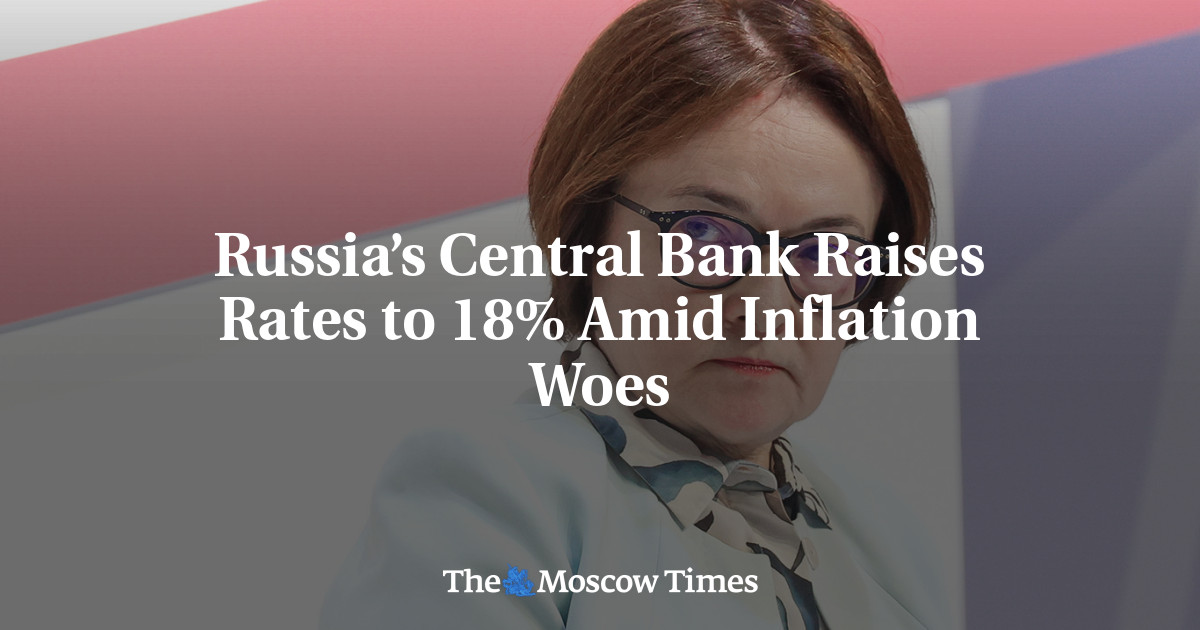
Russia’s Central Bank on Friday raised its key interest rate from 16% to 18%, a widely anticipated move as the country struggles to fight inflation amid surging spending on the war in Ukraine and widespread labor shortages across the economy, which are driving up wages.
“Inflation has accelerated and is developing significantly above the Bank of Russia’s April forecast,” the regulator said in a press release. “Growth in domestic demand is still outstripping the capabilities to expand the supply of goods and services.”
For that reason, the bank explained, “monetary policy needs to be tightened further” so that the government can reach its inflation target of 4%. It also revised its inflation forecast for 2024 up to 6.5-7%, adding that it expects inflation to decline to 4-4.5% in 2025 before nearing the target rate.
Friday’s rate rise marks the sixth in just over a year. The last time Russia’s Central Bank increased interest rates was in December of last year when it hiked the key rate from 15% to 16%.
According to President Vladimir Putin, Russia is set to spend almost 9% of its GDP on defense and security this year, a figure unprecedented since the days of the Soviet Union as the country ramps up arms production for the war in Ukraine.
That surge in public expenditure, combined with record labor shortages across a number of sectors, has created an inflationary spiral that Russia has been unable to shake off despite a gradual increase in interest rates over the past year.
Russia’s federal budget has jumped almost 50% over the last three years — from 24.8 trillion rubles ($289 billion) in 2021 to a planned 36.6 trillion rubles ($427 billion) this year.
Given that so much of the spending is being directed by the state, which is less responsive to higher borrowing costs, analysts fear interest rate rises may not be an effective tool against inflation.
Consumer prices are a sensitive topic in Russia, where many people have virtually no savings and memories of hyperinflation and economic instability during the 1990s and late Soviet years run deep.
But the authorities are finding it increasingly difficult to shield the civilian economy from the costs of the war in Ukraine, which they continue to call a “special military operation.”
The Kremlin said Thursday it was concerned by high levels of inflation and that “measures” were being implemented to tackle the problem.
Russia’s Central Bank will hold its next key rate meeting on Sept. 13. It did not indicate on Friday whether it expects another rate hike at that future meeting.
AFP contributed reporting.